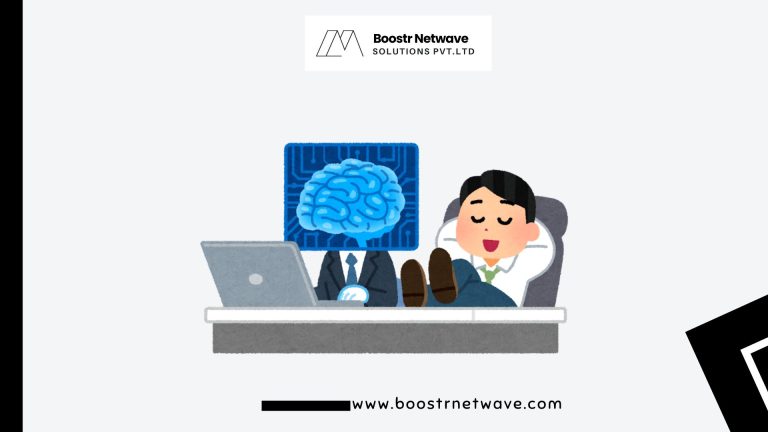Personalized, quick, and responsive service are the pillars of consumer satisfaction, and artificial intelligence (AI) is playing a bigger and greater part in assessing the customer experience.
AI has evolved from a nice-to-have part to a crucial component of company strategy as both big and small companies understand the value of the customer experience as a differentiator.
So how precisely is artificial intelligence improving the customer experience? How is this cutting-edge technology creating memorable experiences that promote loyalty and stimulate business growth out of consumer interactions?
This blog post is for you here we guide ai customer experience
What is AI Customer Experience?

Utilizing AI technologies to improve customer interactions, speed up business procedures, and eventually increase overall customer happiness is referred to as artificial intelligence (AI) customer experience.
This method makes use of a variety of technologies, including robotic process automation, natural language processing (NLP), machine learning techniques, and predictive analytics.
6 Ways AI Customer Experience
1. Personalized Recommendations
Artificial Intelligence analyses customers’ past behaviors, interests, and preferences using machine learning algorithms. It may recognize trends, like product preferences or purchasing data, and make recommendations for goods and services based on this data.
For example, an artificial intelligence system can suggest books that a consumer would enjoy if they often purchase a certain kind of book. This enhances the customer’s shopping experience and boosts sales conversions.
2. Chatbots and Virtual Assistants
Automation of customer service with AI is growing in increasing demand.
These AI-driven chatbots can respond to customer requests, handle simple problems, and deliver information immediately, day or night.
They can be trained to process orders, respond to often-requested questions, and even make customized product recommendations.
Additionally, they can manage high query volumes without the need for human interaction, providing quick and efficient handling of customer requests.
3. Voice Assistants and Natural Language Processing
AI-powered voice assistants, such as Siri, Alexa, and Google Assistant, are growing in popularity. They understand spoken requests and react accordingly by utilizing AI’s Natural Language Processing (NLP) capabilities.
These voice assistants can use a user’s past and preferences to customize help, set up orders, answer queries, and manage other devices.
4. Predictive Customer Service
AI can predict future customer behavior because of its capacity to analyze vast volumes of data. For example, based on usage trends, it may predict that a customer is likely to experience an issue.
The customer’s experience with the brand can be improved if the company proactively contacts the customer with a solution or additional help.
5. Safeguarding Data Security and Privacy
While artificial intelligence (AI) has huge potential to improve user experiences, it also creates security and privacy issues with data.
To gain the trust and confidence of consumers, businesses need to give priority to data protection procedures and make sure that laws like the GDPR are followed.
Businesses can protect customer data and show that they are committed to protecting privacy by putting strong data encryption, access controls, and transparency measures in place.
6. CRM Driven by AI
CRM systems can be greatly improved by artificial intelligence in the customer experience by automating processes like data entry, lead scoring, and follow-up reminders. Additionally, it can offer insightful information, such as identifying prospects with the highest likelihood of conversion, which helps sales teams focus their efforts more efficiently.
Conclusion
In conclusion, businesses can get a competitive edge in the current digital age by utilising AI to enhance the consumer experience. Organizations can create seamless, memorable experiences that increase customer happiness, loyalty, and advocacy by utilizing AI-driven solutions like chatbots, personalization, and predictive analytics. To fully realize the potential of AI to improve the customer experience, it is essential to address implementation problems and give top priority to data protection and security.
Ready to boost your business Schedule a meeting now and let’s discuss your growth strategy! 📈🙂
FAQ’s
How can AI enhance customer support services?
AI-powered chatbots and virtual assistants can provide instant support and personalized assistance to customers, improving response times and overall satisfaction levels.
What role does predictive analytics play in customer experience enhancement?
Predictive analytics enables businesses to anticipate customer needs and preferences accurately, allowing them to tailor their offerings and communications accordingly for a more personalized experience.
Are there any privacy concerns associated with AI-powered customer experience initiatives?
Yes, businesses must prioritize data privacy and security measures to protect customer information and comply with regulations such as GDPR.
How can businesses overcome challenges in implementing AI for customer experience improvement?
Overcoming implementation challenges requires careful planning, investment in training, and collaboration between cross-functional teams to ensure seamless integration and optimization of AI solutions.
Can AI-powered personalization drive customer engagement and loyalty?
Yes, AI-powered personalization enables businesses to deliver targeted content and offers tailored to individual preferences, driving engagement, conversions, and long-term loyalty.
What are some key benefits of using AI in customer relationship management (CRM)?
AI-powered CRM systems provide a comprehensive view of customer interactions and preferences, enabling businesses to deliver more personalized communications, identify upselling and cross-selling opportunities, and enhance overall customer satisfaction.





